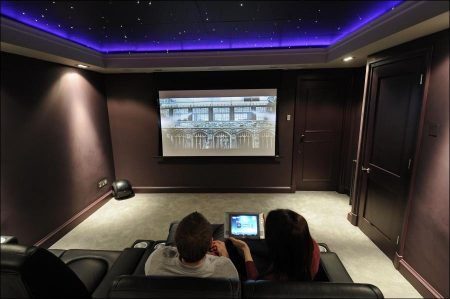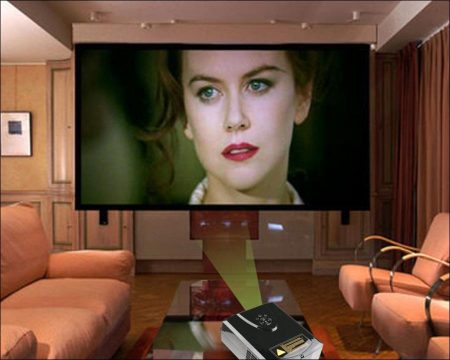Every time you torrent, God kills a cinema.
A new home cinema proposal has Hollywood’s greatest directors at war with each other. Would you pay £35 to watch an Easter blockbuster at home with your family and friends?
How’s this for an idea? Instead of hiring babysitters, trekking to a multiplex, and buying a pair of tickets for Batman v Superman: Dawn of Justice on the Friday night it opens, you could watch it at home. Or you could watch Zootropolis at home (it’s a thousand times better, by the way) and nod sagely through it about your correct decision. Or you could watch them both. Legally.
To enable this, you would need to be in possession of a set-top box (proposed cost: $150, or £105) and would pay a fee ($50, or £35) to hire each film for a 48-hour period. Get the neighbours or your best friends round. Order in pizza. Not worry about who has to drive.
This is the concept of Screening Room, a new start-up rental proposal backed by Napster’s co-founder, Sean Parker. Hollywood is rapidly taking sides on it. Peter Jackson, Steven Spielberg, Ron Howard, JJ Abrams and Martin Scorsese are already shareholders, while Christopher Nolan and James Cameron have positioned themselves firmly in the “anti” camp.
You can expect the arguments for and against to rumble on for some time. The scheme’s fans, like Jackson, argue that it will “expand the audience for a movie”, rather than shifting it from cinema to living room. Parents of young children, for instance, who would never customarily manage the trip out, would find themselves in a position to watch new releases. Jackson sees a “critical point of difference” with earlier attempts to collapse the window between theatrical and home viewing debuts.
“It does not play off studio against theatre owner,” he says of Screening Room. “Instead it respects both and is structured to support the long-term health of both exhibitors and distributors – resulting in greater sustainability for the wider film industry itself.”
The anti brigade are wary of a paradigm shift, though, away from what Avatar producer Jon Landau calls “the in-theater communal experience”. Cinema owners obviously fear a reduction in the all-important selling of popcorn and soft drinks – the markup on these, often an exorbitant 85%, makes a critical difference to their overall profit margins, since studios can receive as much as 90-95% of the gross tickets sales in the first week.
Cinemas are already fighting to hold on to their footfall, with the proliferation of home viewing platforms, blockbuster TV series, and the narrowing of the window between theatrical release and rental. Isn’t this yet another reason to stay at home? Theatre owners such as Art House Convergence (AHC), a speciality cinema organisation comprising 600 different businesses, certainly think so. They issued a stern open letter about the potential economic impact of Parker’s proposal.
“[The] loss of revenue through box office decline and piracy will result in a loss of jobs, both entry level and long-term, from part time concessions and ticket-takers to full time projectionists and programmers, and will negatively impact local establishments in the restaurant industry and other nearby businesses,” the letter said. The UK’s Cinema Association has also weighed in, calling it “a massive risk”.
Parker and his co-backer, the music executive Prem Akkaraju, have nonetheless been canny about recruiting support, partly by proposing to cut in cinema chains on as much as $20 out of the $50 for each rental, and sweetening the deal for cash-strapped consumers with free cinema tickets thrown in.
This would offset what may sound like a steep rental cost, but some analysts actually view the price point as too low, pointing out that it would be possible for 10 teenage girls to hold a sleepover screening of Frozen 2 at a cost of just $5 each: good value as far as families are concerned, but “cannibalisation” in industry parlance.
Previously, the only device which studios would permit to download (rather than streaming) first-run films was a monster of a thing called PRIMA, an ultra-high-end service you had to get installed in a closet, which cost a pretty $35,000 (£24,750) and required individual rental fees of $500 (£350) – making it singularly unlikely to threaten the mass-market dollars the cinema industry depends on.
Visits: 79




